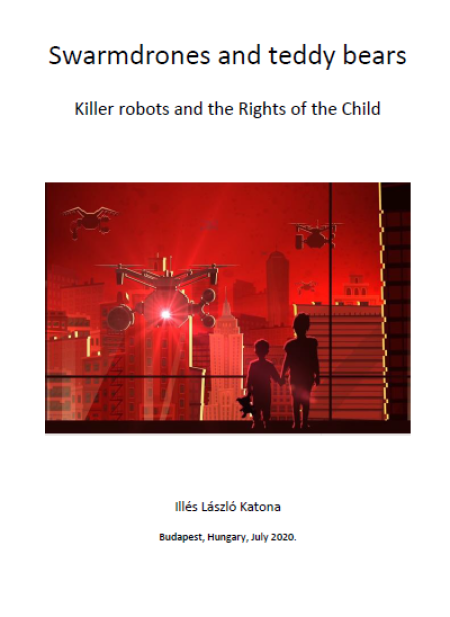- Loghează-te sau înregistrează-te să postezi comentarii
- 94 vizualizări
Killer robots (also called lethal autonomous weapons systems, which would be able to select and kill targets without human intervention) raise many questions and we should draw attention to threats and possible violations are of special importance and do everything we can to achieve a ban on killer robots, and to prevent violence, war, armed conflict in general.
The present study thoroughly analyses those fields where the rights of the child may be directly affected by the existence or use of killer robots. A thought-provokingly high number of aspects can help the reader to inform and formulate their personal opinions, given the novelty of the issue.
The rights and the protection of children in war have now become a focus of international law, but in the case of autonomous weapons, there is a manifest shortage of child rights perspective. The merits of a child-based legal analysis on killer robots are not limited to invoking some basic principles in theory - the practical protection of their right to life, special protection, health, education and their best interests, in general, can all be relevant in the context of killer robots. By carefully examining these rights one by one, the study aims to provide an informed answer whether the development and use of killer robots are incompatible with the provisions of the Convention of the Rights of the Child, and if so, to make brief suggestions to states and relevant organizations in order to ensure the prevalence of all those rights mentioned throughout the paper.
The content of this study does not reflect the official opinion of the ChildHub or Terre des hommes. Responsibility for the information and views expressed lies entirely with the author(s).






